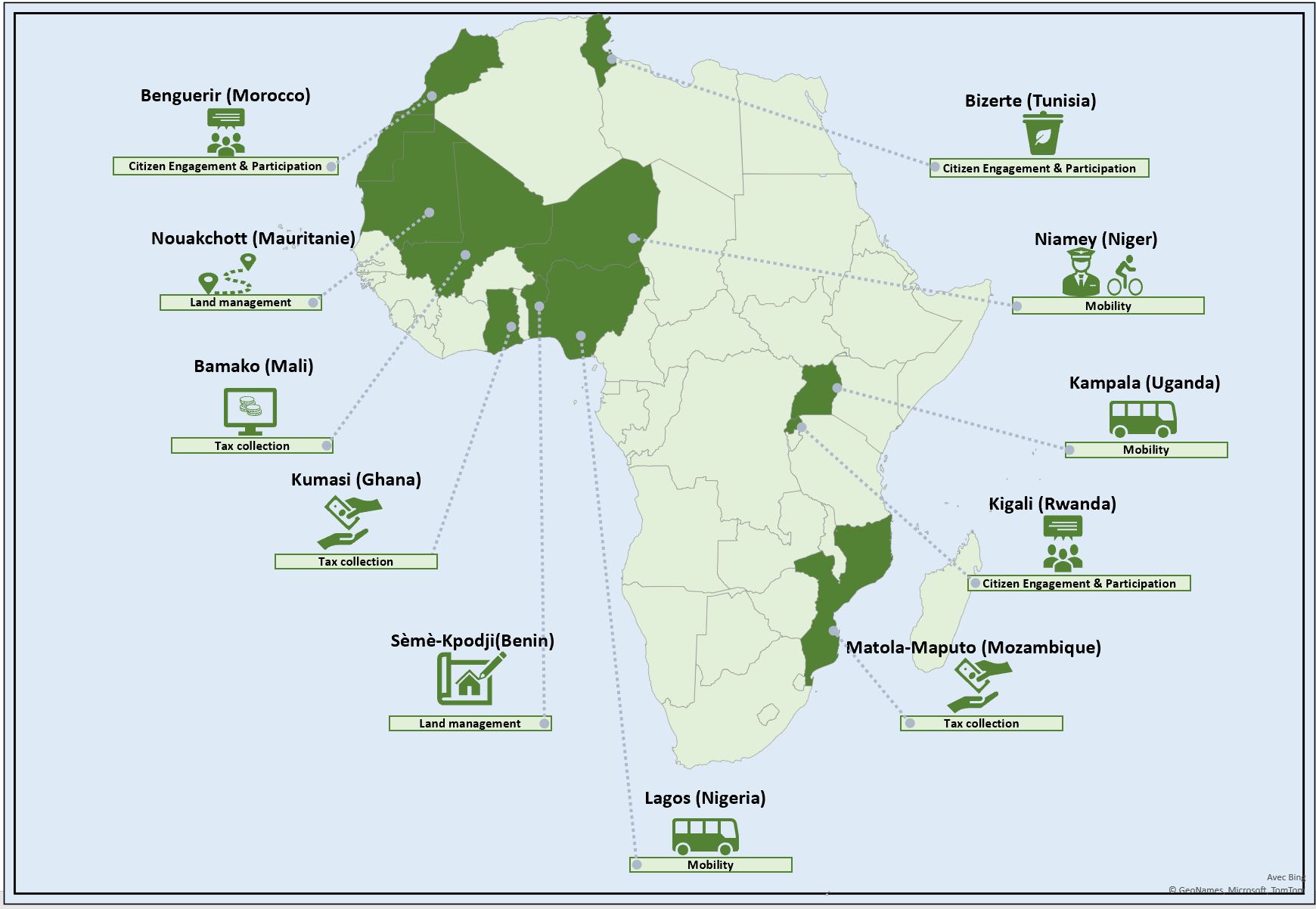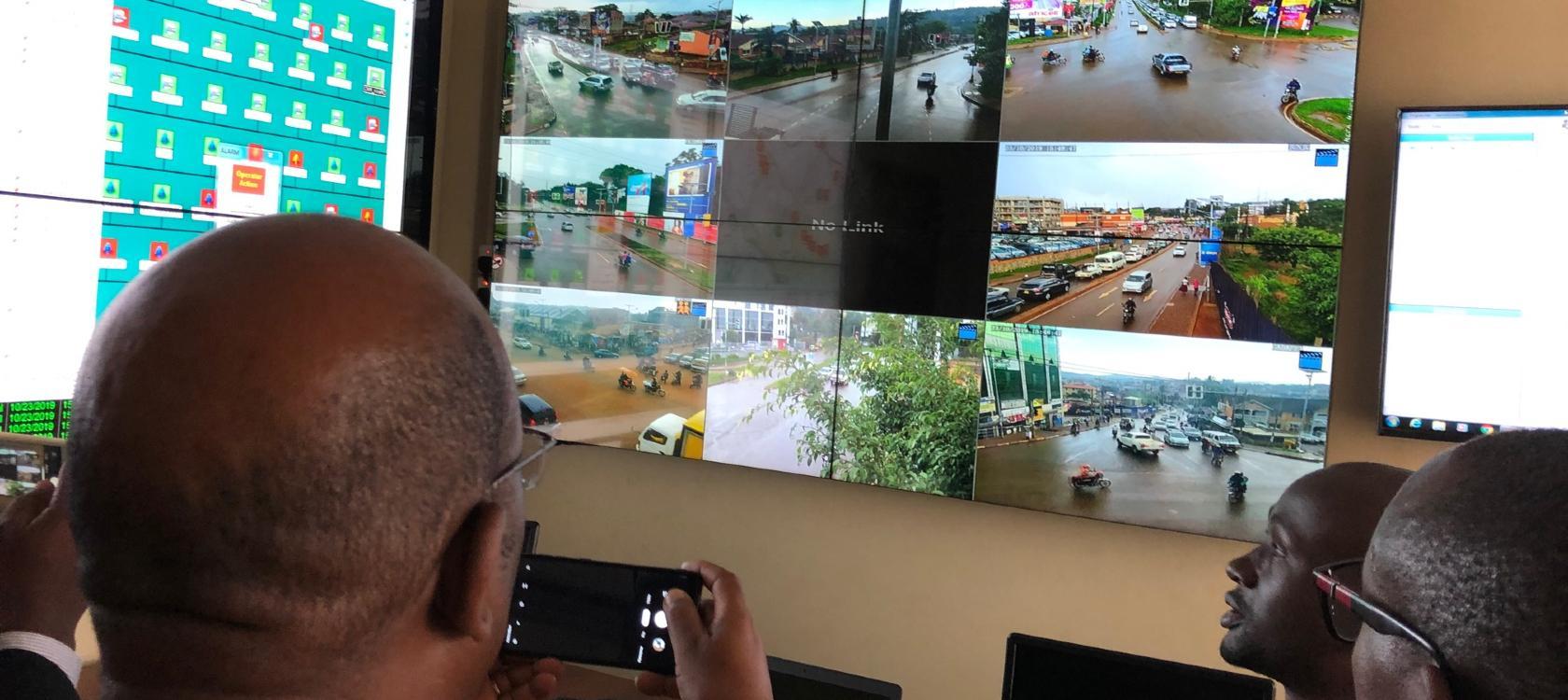Africa is not left behind in the implementation of the Sustainable Development Goals as different African cities are implementing strategies to speed up the SDGs. One of the problems that developing cities face is making the digital transition. The French Development Agency (AFD) currently provides technical assistance to 11 African cities to accelerate the cooperation among them by creating digital activities together through the African Smart Towns Network (ASToN) to build more sustainable and inclusive communities.

Those 11 cities aim to use digital platforms to solve local and global issues. The goal of establishing an alliance and collaboration among the participating cities is for them to quickly become leading digital players in their respective local contexts responsibly and sustainably.
AFD funds this flagship program, which is run by the National Agency for Urban Renewal (ANRU) and employs URBACT expertise and tools. URBACT is a European area partnership initiative. Over the past 18 years, URBACT has partnered with over 1000 cities in Europe to establish city collaboration networks. They aim to use this expertise to try and build a similar cooperative network among African cities.
Why ASToN?
This two and a half year project will help African Local Authorities to make the most use of digital, data, and technology by:
- Creating a local dynamic through local action groups
- Framing a clear problem to address using digital & tech
- Developing a Local Action Plan
- Testing solutions and learn from the process
- Creating a strong network of African cities supporting and learning from each other
- Building capacity amongst local teams to confidently use digital tools and technology
- Sharing the results and lessons from ASToN
ASToN member cities

11 African cities, each from a different country, were chosen and engaged in the project’s first phase: Bamako (Mali), Benguerir (Morocco), Bizerte (Tunisia), Kampala (Uganda), Kigali (Rwanda), Kumasi (Ghana), Lagos (Nigeria), Matola-Maputo (Mozambique), Niamey (Niger), Nouakchott (Mauritania), Sèmè-Kpodji (Benin).
An initial assessment of the current status of each town was conducted by ASToN. They then worked with each city to define the thematic that would be treated during this project.
ASToN cities flagship projects
The cities were grouped together depending on the thematics they want to treat, 4 principle thematics have been identified:
- Citizen Engagement & Participation
- Tax collection
- Mobility
- Land management
Citizen participation
3 cities have prioritized this thematic in order to better communicate with citizens, and improve communications chosen to engage themselves in citizen participation to connect citizens and the local authority to inform decision-making and ensure that no one is left behind.
Kigali is working on bridging the digital divide. An increase in the number of digitally literate adults and greater use of e-government and e-business resources are key indicators in building a digital economy.
Bénguerir is focusing on the health sector and improving access to health facilities via the implementation of digital solutions.
Bizerte wants to get people involved in effective waste management and the cleanliness of their city.
Tax collection
Kumasi, Matola, and Bamako are currently having trouble assessing and raising taxes from assets and enterprises, due to the ineffective current tax collection mechanisms. Digital solutions would help them simplify the collection process and increase the revenue collected.
In Kumasi, tax collection is currently conducted manually, making tax collection and reporting impossible.
In Matola the huge number of tax collections is also conducted manually, with people visiting tax collection points in person.
Bamako wishes to focus on car tax stickers. The change in the car tax scheme would be tangible in terms of increased tax revenue and increased appreciation from those buying vehicle stickers.
Mobility
Lagos, Niamey, and Kampala want to address public transport, traffic, vehicles, road safety, and all other urban mobility-related issues. Like many other cities, they face traffic congestion, which worsens during peak hours.
In Lagos, making citizens more aware of the availability and schedules of public transport would be a first step in tackling the different mobility and traffic issues faced by the city.
The key goal for Niamey is to help diminish the city’s accident rate, congestion, and improve the digital resources used by the traffic police.
In Kampala, the lack of available information concerning road activity is considered as one of the causes that trigger traffic jams so one of the priorities would be making this type of information accessible so that citizens can better plan their routes.
Land management
Sèmè-Kpodji and Nouakchott will focus on the administration, use, and development of land resources in an urban environment, including addresses and land registry.
Sèmè-Kpodji has a paper-based land registration scheme. The city faces a structural problem in land titling and administration because landowners cannot readily access their titles and public services do not have access to the data required to carry out their functions.
The lack of a commonly adopted addressing system in Nouakchott has a significant effect on the city’s everyday operations and growth. This project aims to set up a modern addressing system that incorporates a new approach focused on the use of new technology, as well as the participation of the public.
Follow the ASToN website, Facebook, Linkedin, and Twitter to keep track of the updates of the ASToN network.

